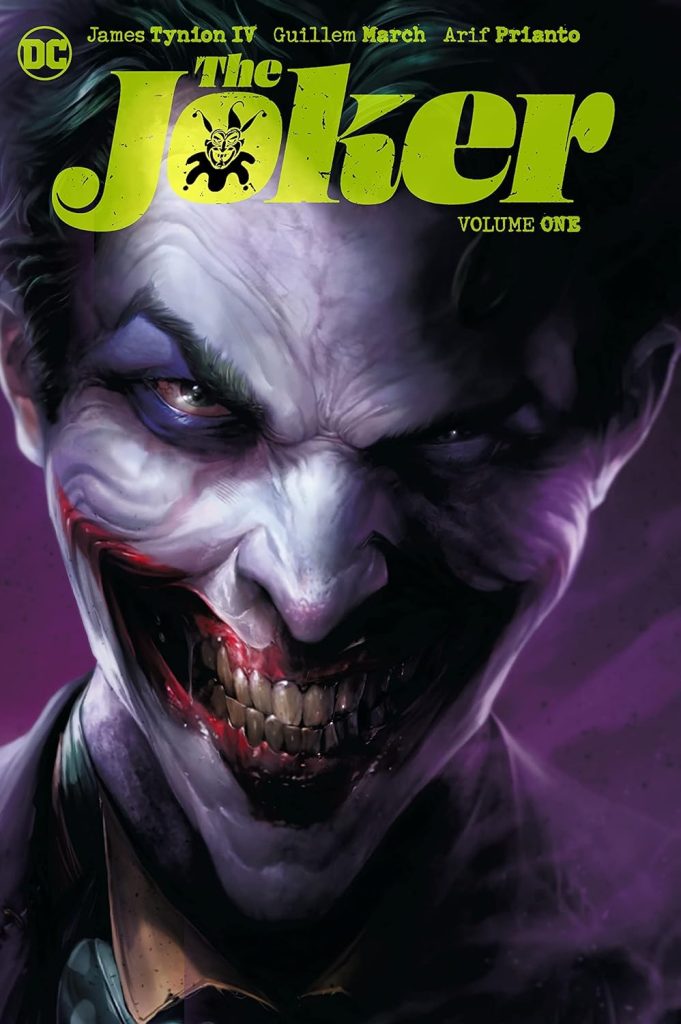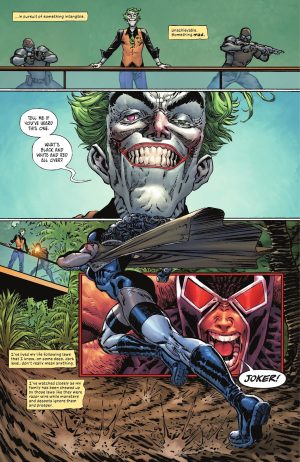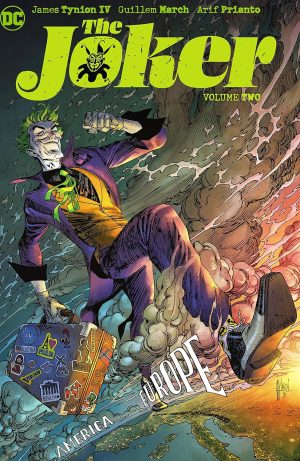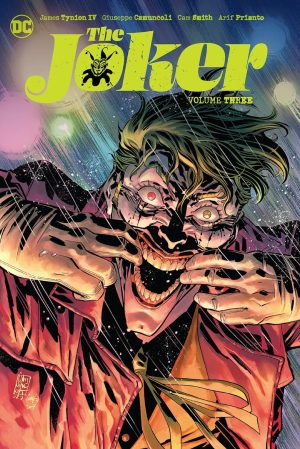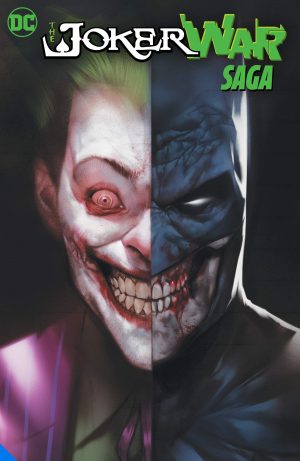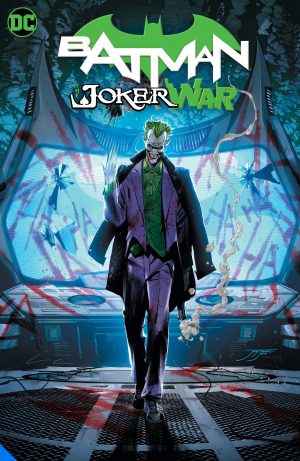Review by Ian Keogh
This is very good. That comes with a qualifier, though. There’s a likely expectation of the Joker being the primary character, given his name is the title, but he’s not. While acknowledging calling the series James Gordon isn’t the path to financial success, it’s a rare example of quality outranking some commercial concerns and Gordon is the primary character throughout.
James Tynion IV has had a fair part in ramping up the Joker into a sadistic and depraved maniac more at home in a slasher film than a Batman story. However, while it creates a hateful villain for Batman to track down, Tynion’s astute enough to know it’ll make for a repetitive Joker series at best. Instead the Joker appears symbolically for the first half of this volume, and only in a starring role for a single chapter.
That’s not to say you’re being shortchanged. Once Gotham’s police commissioner, James Gordon has been forced out by the current mayor. Tynion’s scene setting includes a resonant sequence with an old cop who tells a young Gordon about being haunted by the Boogeyman, the one criminal who always remains out of reach, and Gordon mulls on being haunted by the Joker throughout his police career. He’s in a reflective mood as he considers past encounters, and unsure what he’s going to do with his life when approached by someone offering $25 million to track the Joker down and kill him. Even with the provocation Gordon’s had from the Joker over the years, is he a killer?
Tynion’s narrative for Gordon is convincing when considering police procedure and the arc of a career, and also when it comes to what Gordon has sacrificed during his career. Guillem March gives these downbeat considerations the proper moody atmosphere of a dark and sometimes rainy Gotham and his symbolic Joker looming over Gordon in the darkness resonates. March draws the Joker’s features differently throughout, adding to the symbolism of a killer who’s never predictable, and he establishes several different locations outside Gotham.
Francisco Francavilla’s distinctive orange palette and first rate storytelling is applied to a flashback chapter in which Tynion with Matthew Rosenberg consider Gordon’s reaction to Arkham Asylum when first constructed. It’s a tense, haunting piece, showing how his priorities destroyed his marriage.
Key to the entire proceedings is Arkham’s destruction, laid at the Joker’s feet, yet the Joker claims it wasn’t him. Many were killed during Arkham’s collapse, and it’s led to several powerful criminal organisations deciding the Joker’s time is up. The situation is far from resolved here, and won’t be in Volume Two, as this so far very satisfying psychodrama requires three volumes for the full telling.
